We never got a chance to reform our state and politics like now. Let’s not waste it
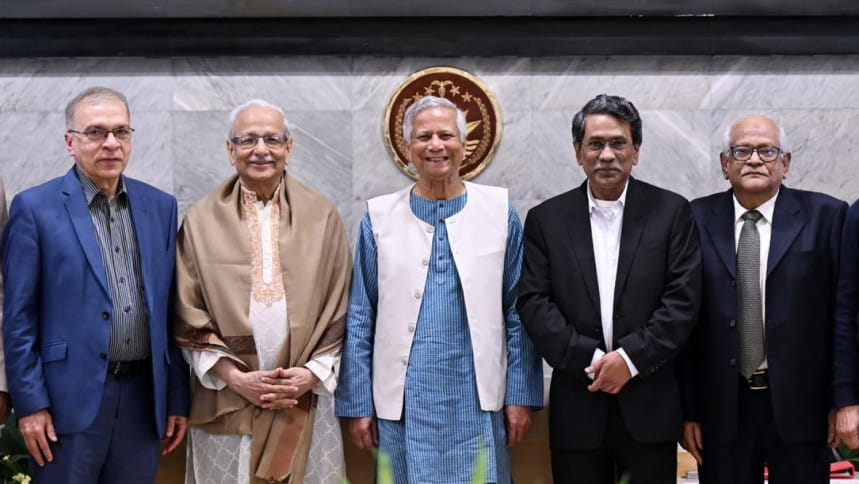
This may turn out to be Prof Muhammad Yunus's most lasting legacy. He gave a chance to the poor to break out of the shackles of poverty through microcredit. He is now giving Bangladesh a chance to break out of all its political, governance, and institutional shackles to march forward with democracy, equality, justice, and tolerance. With one stroke, he is literally opening up a rare chance to carry out fundamental reforms in some of the vital areas that we have been unable to do over the last 54 years.
While we congratulate the chief adviser and his team for this grand work, we must not forget to thank the real heroes who opened the door for all these reforms for us: the students, a section of teachers, intellectuals, civil society leaders, a section of the media, and, of course, the general public.
Independence in 1971 gave us the first opportunity to build a democratic and egalitarian state. We got a second chance when Gen HM Ershad fell and democracy was restored after a coordinated mass uprising led by the alliance of political parties. We missed both these opportunities. Now, historically, the students' nation-building role is not new; they played pivotal roles in the Language Movement of 1952, and the democratic and anti-military movements of the Pakistan period in the late 1950s and 1960s. Their role, including that of our rural youth, during our Muktijuddho, was the most glorious. They were at the forefront of the anti-Ershad movement in the 1990s, and then the student-led mass movement in July-August 2024 that has given a new opening to build the Bangladesh that was the dream of the Liberation War martyrs.
When Sheikh Hasina fell, instead of going for an immediate election, instituting a self-corrective process was the right—and historic—decision. The idea to form reform commissions was a most appropriate one. The choice of areas to concentrate on were right. The selection of individuals to head the commissions received general acceptability, though the relative absence of a woman head of commission (except one) marked a serious lapse. Finishing the work of four commissions within the stipulated time also testifies to their efficiency and sincerity.
Our initial study of the reports of the four commissions, submitted on January 15, indicates that the recommendations are quite substantive, though some seem based more on emotion than clear judgement.
Recommendations of the Constitution Reform Commission are very significant. We support the introduction of the bicameral system, limiting the tenure of a prime minister to two terms, introduction of the National Constitutional Council, and reintroduction of the caretaker government system. However, we think holding elections after every four years may be counterproductive as it shortens the tenure of an elected government to implement their plans and projects. Also, elections are a hugely expensive affair and involve massive logistical tasks, which a country like ours may find burdensome.
Reforms of the election system and Anti-Corruption Commission (ACC) are vital. We want to emphasise police reforms because, of all the state institutions, the police, in our view, have been maligned and misused the most. A study conducted by the International Truth and Justice Project (ITJP) and Tech Global Institute (TGI), which was released on January 14, showed how our police force was turned into a brutal, inhuman and bloodthirsty force, which proves the urgent need to totally transform the force from an anti-people institution to a pro-people one. The most difficult task will be changing the mindset of the police members. They have been conditioned to hate demonstrators and consider every protester as an "enemy." They have little training on crowd control, except to beat them up or shoot to injure or kill.
All recommendations of the four commissions, and others that are expected to follow, must be subject to a genuine national debate. The first thing that needs to be guaranteed is openness. There should be no name-calling and "tagging" because of the views expressed, which will prevent the type of genuine discussions that we need. The chief adviser has correctly focused on discussions with political parties. We think an additional attempt should be made to engage think tanks, specialised rights groups, religious and ethnic minorities, etc. The media should reach out to its readers and viewers and try to expand both the depth and reach of the discussion.
As for the political parties, they should approach the reform proposals with national interests in mind, and not that of their parties. There is no denying the fact that after the restoration of democracy in 1991, Bangladesh has been ruled by only two parties—the Awami League (AL) and the Bangladesh Nationalist Party (BNP)—though both had allies while in power. With Sheikh Hasina's fascistic rule, we may be tempted to forget that BNP ruled us for 10 years since Ershad fell.
The basic mistake made by both AL and BNP during the period of 1991-2006 is that they did not consider the parliament to be the House of the People, but rather as an extension of the ruling party, because the treasury bench had the majority. The fact that even as the minority of few, the parliament offered a much better chance for the opposition to voice dissent. But in our case, the unfortunate trend was to boycott parliament. It would always start with a walkout for hours, followed by boycott for days, then weeks, then months and finally resignation. Our lack of experience in operating within a parliamentary form of constitutional structure—we practically had none till 1991—was the main cause of our failure. The notion that the opposition is considered the "government in waiting" or the "shadow government", and as such commands a place within the power structure, had no place in the thinking process of the treasury bench. On the other side, the opposition thought that making the government dysfunctional by never cooperating with them in parliament was their objective, which terribly weakened the system. Let's not forget the public suffering and damage to the economy that were caused by incessant and irrational hartals.
This newspaper has published dozens of reports, editorials, and op-eds pleading with the ruling party to give due respect and status to the opposition, while begging the opposition not to boycott the House. It was all to no avail. The result was the gradual weakening of the parliament, the parliamentary system, and finally democracy.
While reforms of so many state institutions are under discussion, we cannot miss the fact that we need to reform our political parties too.
Prof Yunus's move to set up a consensus commission is a highly commendable one. Dialogue with all political parties is the way to go forward. However, there is also the critical responsibility of the political parties to take the whole process seriously and honestly. We urge them to bring their concern to the table, argue with facts and logic, but finally come to a consensus. Once we are able to do that, political parties must pledge publicly that whichever party is voted to power by the people will honour their pledge, and through resolutions in the new parliament, they will bring them all into our governance structure through amending both the constitution and the relevant laws.
Mahfuz Anam is the editor and publisher of The Daily Star.
Follow The Daily Star Opinion on Facebook for the latest opinions, commentaries, and analyses by experts and professionals. To contribute your article or letter to The Daily Star Opinion, see our submission guidelines.

 For all latest news, follow The Daily Star's Google News channel.
For all latest news, follow The Daily Star's Google News channel. 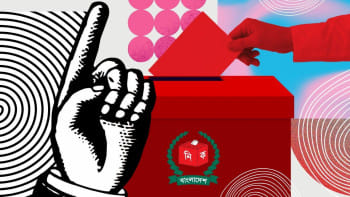


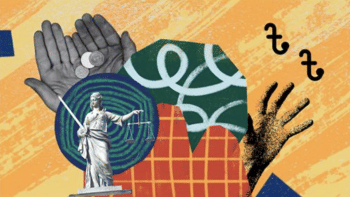
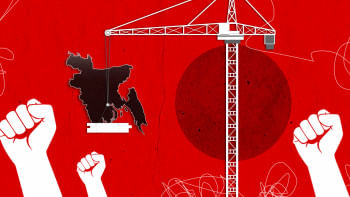




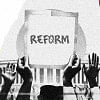




Comments